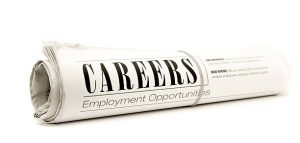Cover Letters – Avoid Some Common Mistakes
Your cover letter or introductory email is often the first thing a potential employer sees when reviewing your job application. It’s your first opportunity to impress but can also be your first opportunity to disappoint. Listed below are a number of potential pitfalls: Too short or too long A cover letter that’s too long is…
Your cover letter or introductory email is often the first thing a potential employer sees when reviewing your job application. It’s your first opportunity to impress but can also be your first opportunity to disappoint. Listed below are a number of potential pitfalls:
Too short or too long
A cover letter that’s too long is a common mistake, but it can be just as damaging if your cover letter is too short. Brevity is fine however writing “Dear Sir/Madam, I apply for the advertised vacancy. Yours faithfully”, is worse than no letter at all.
An ideal length is 200 – 300 words, making sure you address the most important of the critical criteria listed in the advertisement and pointing out any relevant education or experience not mentioned in your CV.
Wrong Addressee/Company Name/Wrong Cover Letter
This is perhaps the most common mistake: applicants who use a standard format but forget to change the name of the recipient or the job title or both, or even send the wrong custom letter for a particular job type. This quickly shows that the applicant is careless, lazy or illiterate or perhaps all three.
Personal Stories
Your cover letter is the “hook” that should sufficiently interest the reader to continue and read your resume. Listing items that are not immediately relevant to your application, such as hobbies, are best left to your resume.
Poor expression
Even though your cover letter should be brief and concise, there is no excuse for poor expression or bad grammar; it is not a text message. Have someone critique your letter – a fresh pair of eyes can spot mistakes and poor expression, whereas the writer may not.
Irrelevant Experience
When you are applying for a particular role, there is little point in using your cover letter to draw attention to experience that is not directly relevant to the role. For example: If you are applying for a role as a brain surgeon, you wouldn’t draw attention to your experience as a timber cutter. The reader of your letter has about one minute to read and decide to follow up your application. Make use of this minute to make a well argued case to ensure your resume is also considered.
Arrogance
Nothing turns off potential employers more quickly than cocky applicants who oversell their case. For example, calling yourself the “best sales executive in Australia” is an un-supportable and meaningless assertion that tells the reader very little.
Cultural or Religious Preferences
Believe it or not, some candidates insist on including in their cover letters information about themselves that is not only irrelevant but can be actively deleterious. For example, applying for a farm manager’s role and supporting your claim by saying you love country music will not assist your claim but will probably aggravate the employer as you have told them something that they didn’t need/want to know. Equally it is wise to avoid religious and political references.
Jokes
We all know that people have quite different senses of humour: your idea of funny may be offensive to others and, similarly, people have vastly different ideas about when funny is appropriate.
The Latest Updates
Let’s look at the current trends in job demand and talent availability in the agriculture and agribusiness sector in Australia over the second half of 2023 and the first quarter of 2024. There was a weakening of job demand in this sector but a slight improvement in candidate availability and job interest during this period….
In times past, people’s working lives often played out over many years at one company, but now the world has vastly changed. These days it is common to shift between jobs and organisations, but this practice raises questions as to what is today considered the Goldilocks time to spend in a job? How often do…
Employee retention matters. Organisational issues such as training time and investment, lost knowledge, mourning, insecure co-workers and a costly candidate search aside; failing to retain a key employee is costly. Various estimates suggest that losing a middle manager costs an organisation up to 100 percent of their salary. The loss of a senior executive is…











